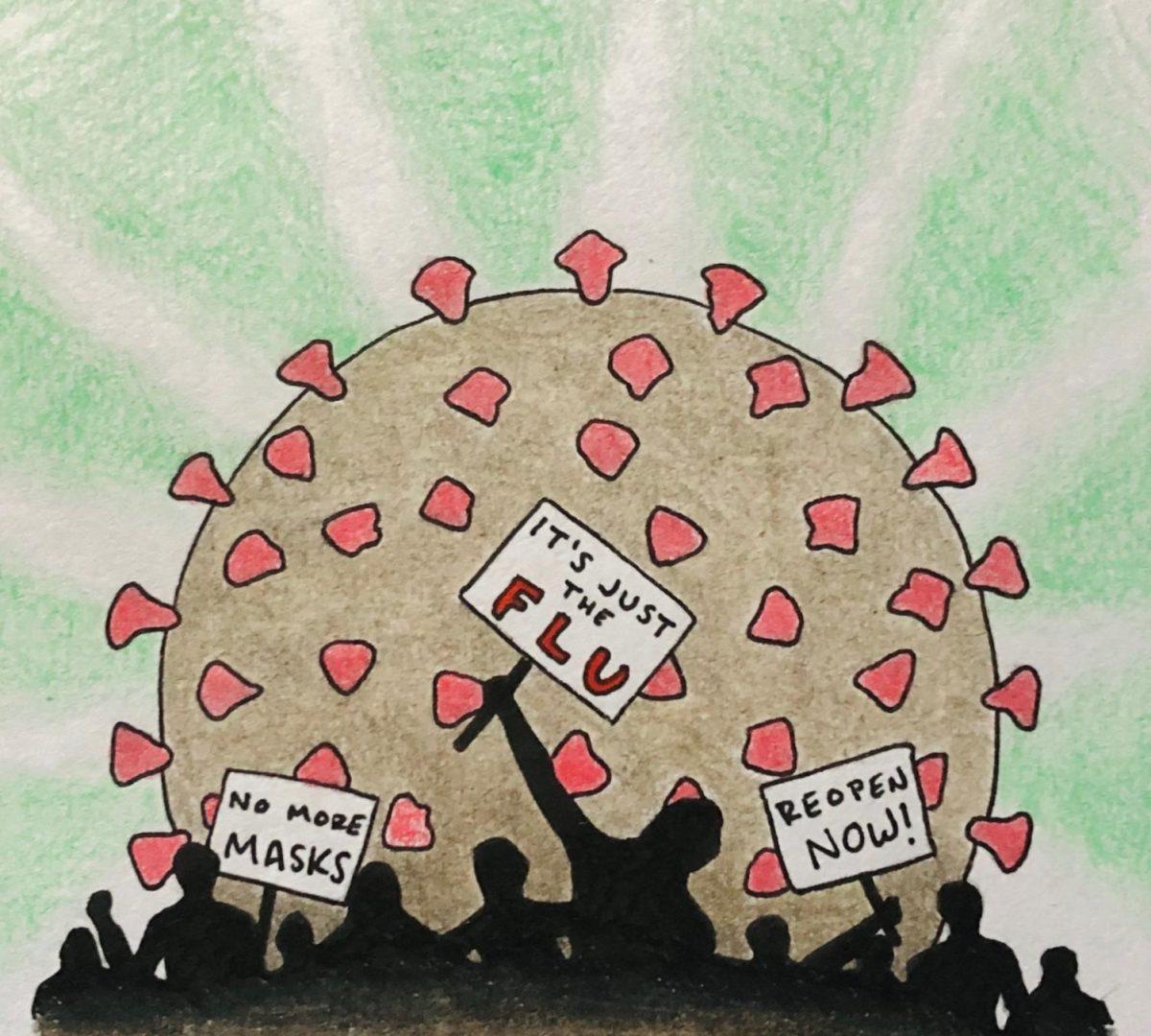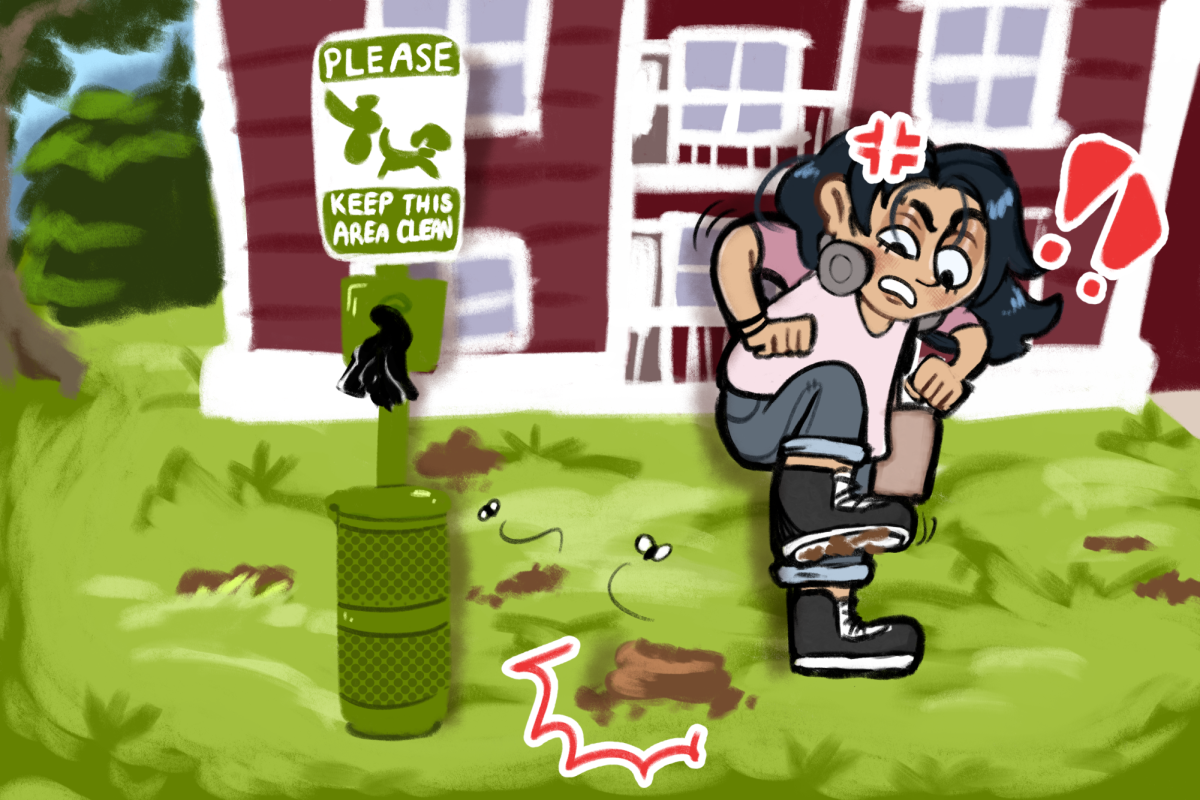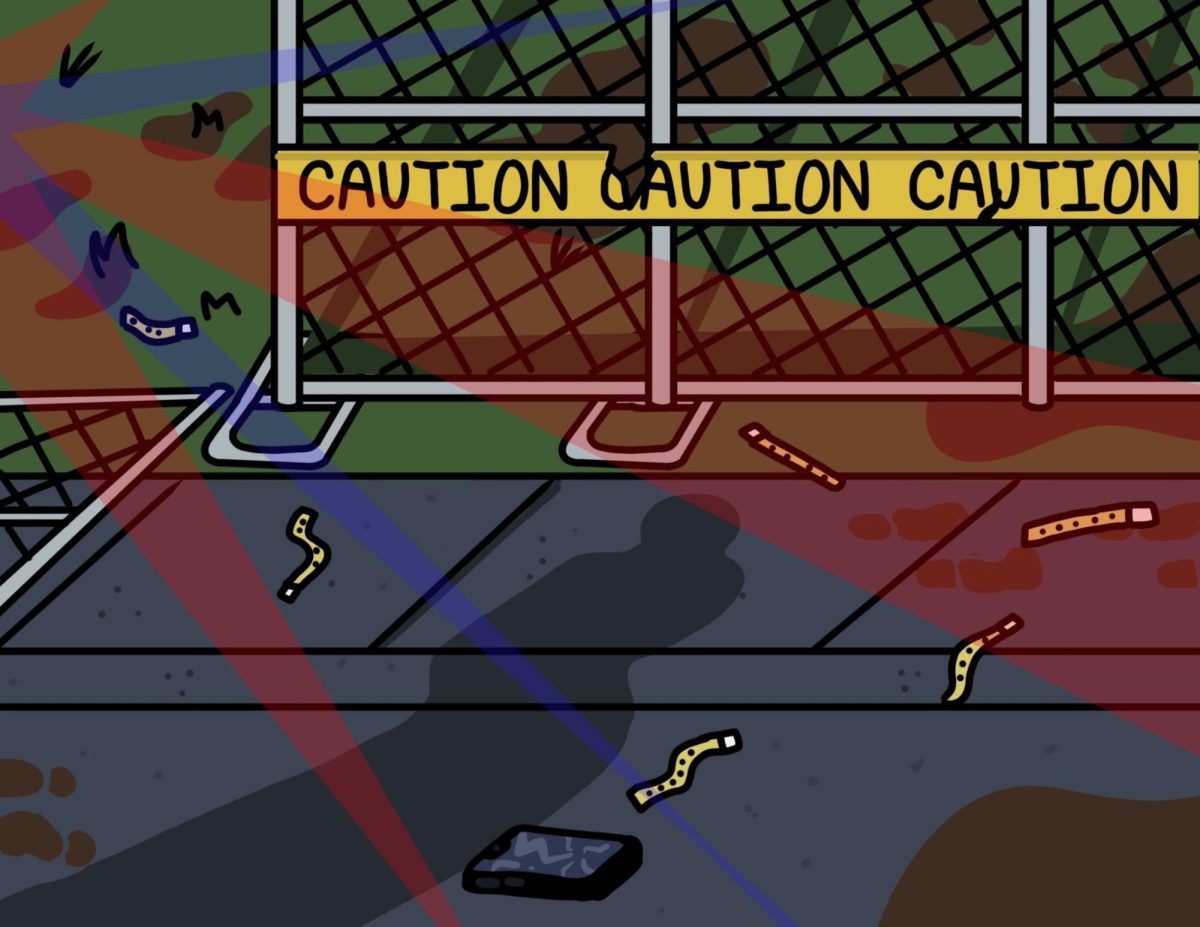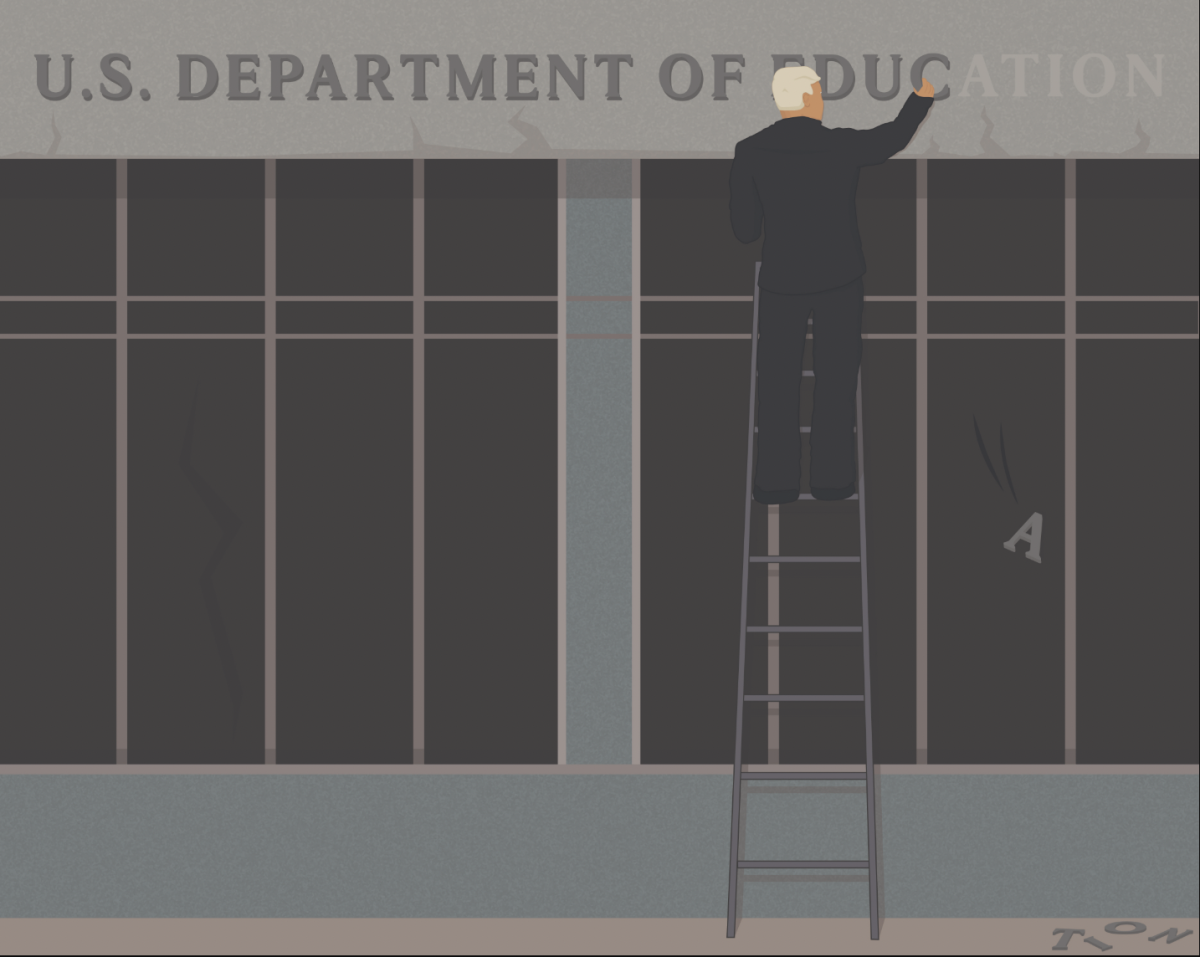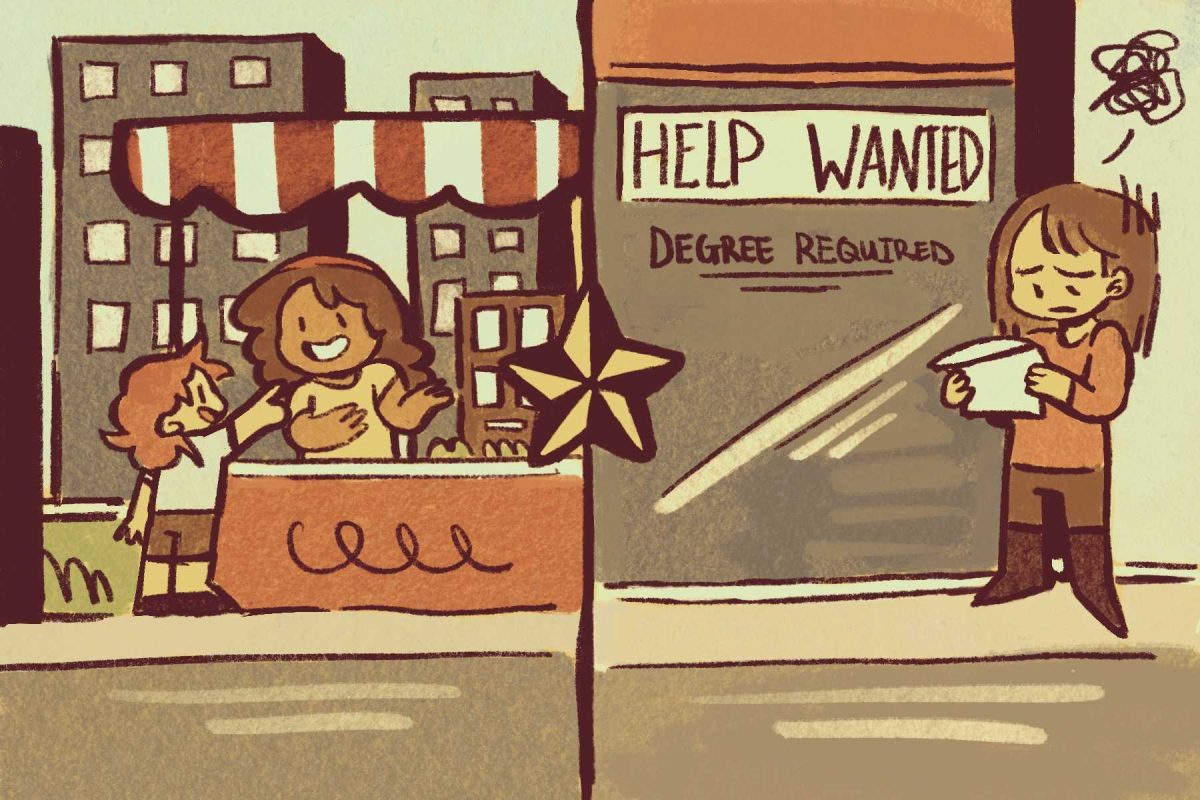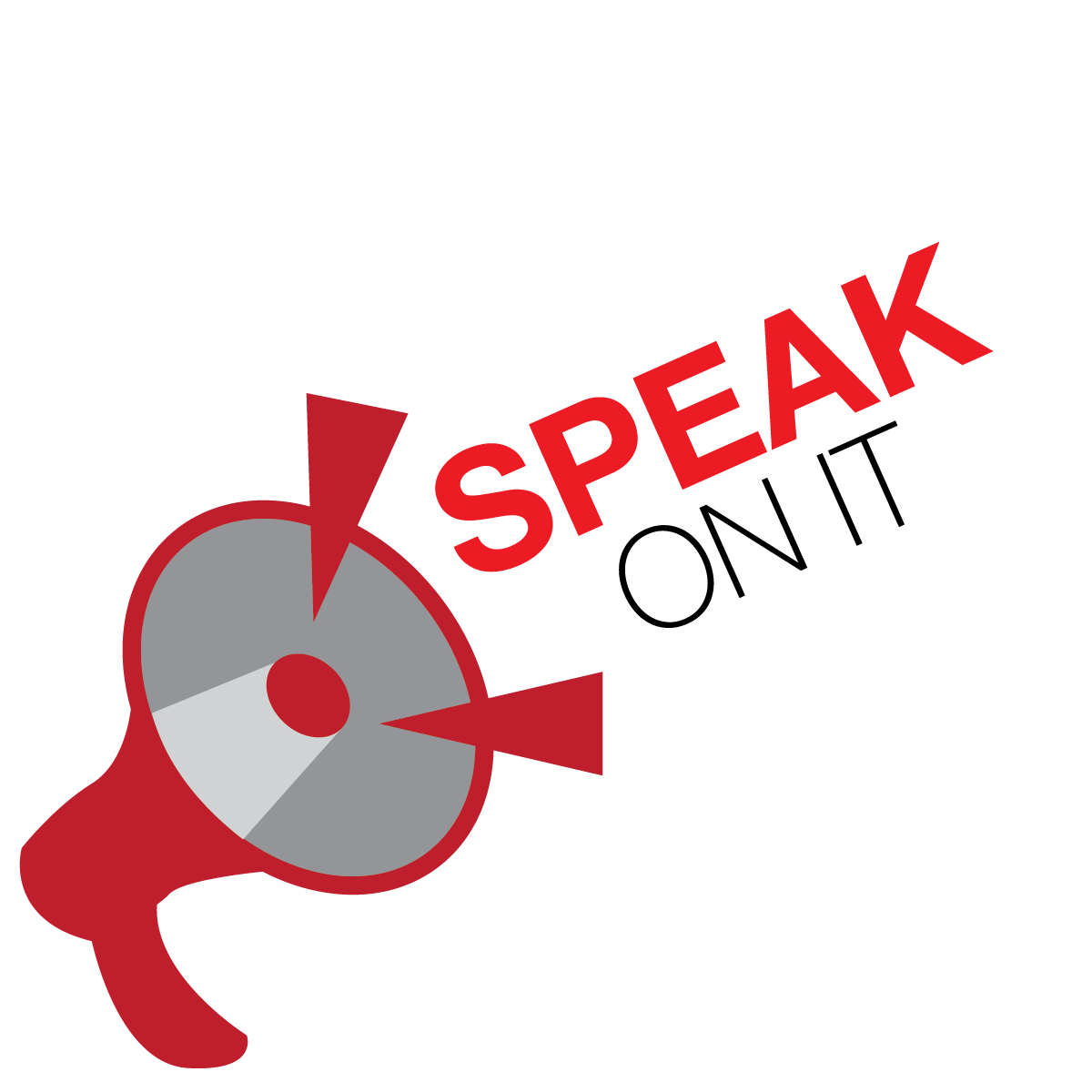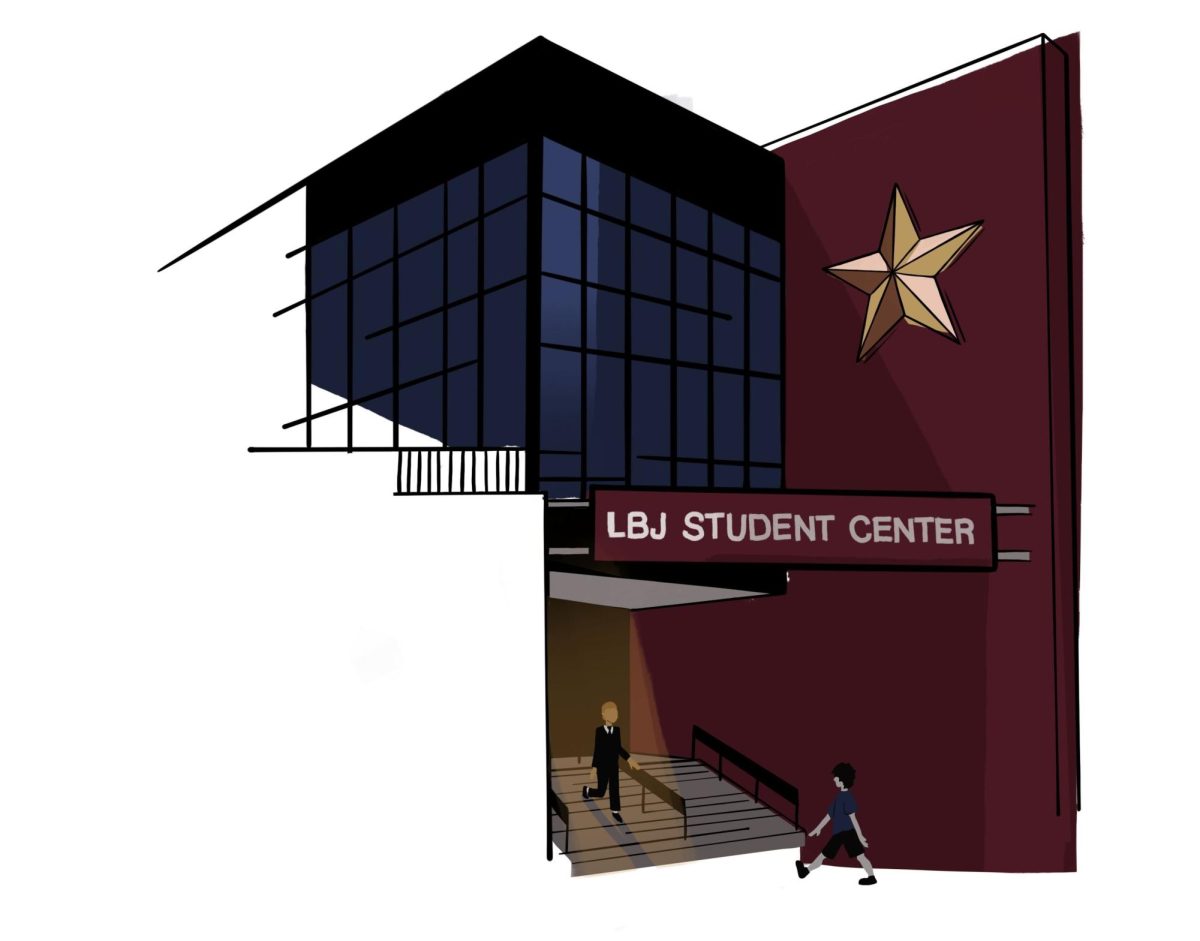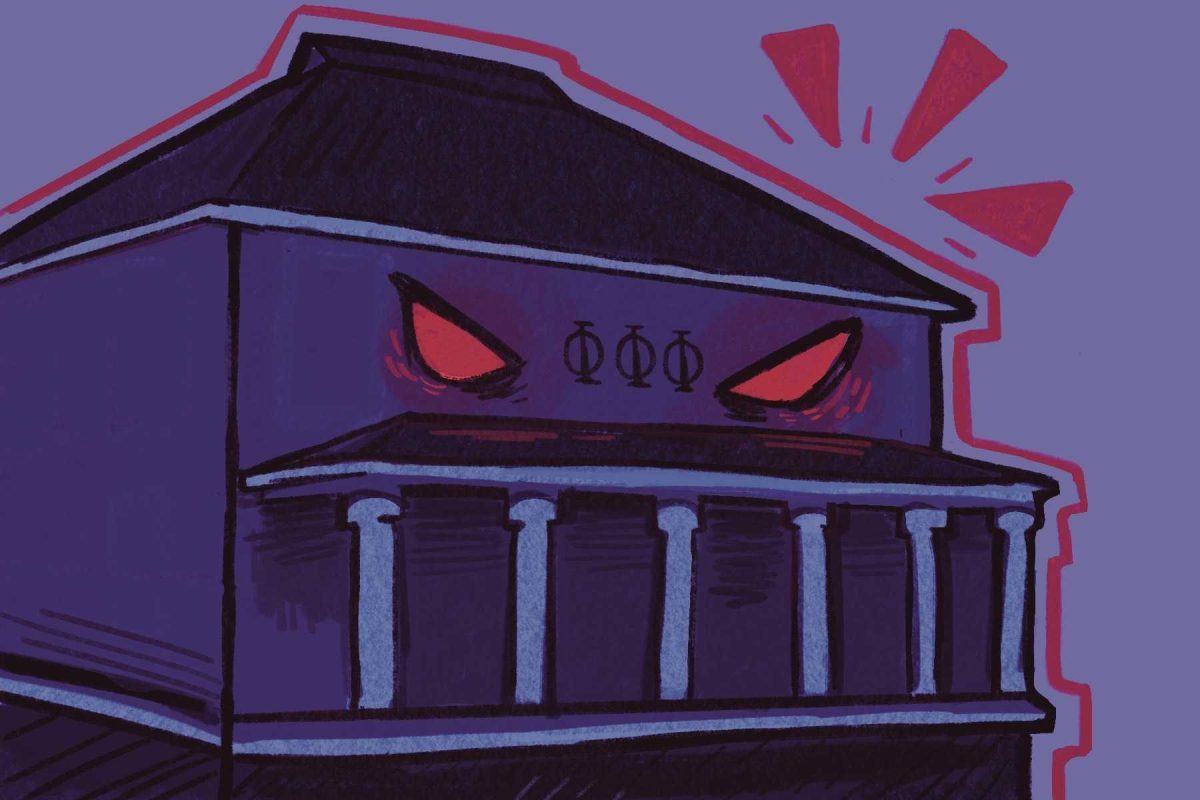PBS’s American Experience documentary about the 1918 influenza pandemic, which infected about a third of the world’s population, states “as soon as the dying stopped, the forgetting began.” With COVID-19 still present throughout our communities, we cannot allow history to repeat itself.
Everyone has a responsibility to stay concerned about the spread of COVID-19 and to be afraid of what will happen if the virus is ignored. It is our responsibility to stay home whenever we can, wear protective face masks and wash our hands; human lives quite literally depend on it.
The collective trauma we face today as a result of COVID-19 affects us whether we have been personally affected by the virus or not. Even if people are not grieving the loss of a close friend or relative, they grieve the losses of faces seen on television, as well as despair at the sense of utter helplessness. No vaccine, no treatment, no hope.
There have been many comparisons between the 1918 influenza pandemic and the COVID-19 pandemic we are still living through.
In 1918, farms, factories, schools and churches shut their doors; mask-wearing was required across the nation. Much like COVID-19, the 1918 pandemic left the nation in a state of collective trauma. This collective trauma left Americans of the past eager to forget the doorsteps piled with the dead, the ubiquitous face masks and the thousands of lost family and friends.
Unfortunately, just like the nation forgot the horrors it faced in 1918, people have begun to lose focus on the virus and what it can do to us. At the time, honoring the heroes of World War I overshadowed the tragedies Americans experienced at home. Now, the civil unrest following the countless killings of Black people at the hands of police has forced Americans to reevaluate their priorities.
In a way, it makes sense—why mourn something one cannot control when one can take action against something to which solutions can be more readily found? After all, protesting, calling congresspeople, writing emails and letters and posting on social media about systemic racism and injustice makes people feel as though they are making a difference.
With COVID-19, people may not feel like they can make any impact unless they are drug developers or geneticists working on a cure.
Wall-to-wall media coverage about other parts of the country may have played a part in the complacency many Americans feel. For example, when cases were concentrated in New York, it was easy for those in other parts of the country, like Texas, to feel safe from harm.
When people got tired of lockdowns and stay-at-home orders, they began to get active again. People said things like, “if I get it, I get it” or “it’s just like the flu.”
According to Harvard behavioral scientist Jennifer Lerner, fear helps people avoid taking risks. People who are primarily afraid of contracting COVID-19 may be more predisposed to wear masks, wash their hands regularly and stay at home unless they must go somewhere. On the other hand, anger about lockdowns and perceived slights against personal freedom decreases people’s perception of risks.
Fear is preservative, as long as it is not extreme.
Nearly six months into this crisis, many Americans are beginning to feel crisis fatigue, burning out on staying informed and taking precautions. But as more time passes, and cases begin to crop up in areas where people felt safe, healthcare workers and infectious disease specialists are beginning to learn more about COVID-19 and the virus that causes it. What they are learning should keep us scared.
When you get COVID-19, you may have a persistent dry cough and a fever. You might feel weak and easily fatigued. Alternatively, you may lose a sense of smell and taste; in some cases, it may take forever before they return.
You may even develop severe pneumonia. Breathing may become difficult to the point where a tube is required to be inserted into your trachea so that a machine can force air in and out of your lungs to keep your oxygen supply stable. Your lungs may fill with a clear jelly-like substance.
Of course, if you are infected with COVID-19, you might also get lucky and recover after a few uncomfortable weeks. Even then, you may feel fine on the surface level, but the insides of your lungs may be riddled with scars, blood may begin to form clots leading to strokes and your liver may start functioning abnormally.
Even if you never show symptoms, your lungs may become inflamed and begin to fill with fluid, without ever coughing or experiencing shortness of breath. Your lungs may be permanently damaged in ways doctors and scientists do not yet understand.
But you feel fine, right? And businesses are open again, right?
There is so much to fear about COVID-19. We are not safe, and we are unlikely to be safe in the near future. It is time to get scared and stay home.
– Toni Mac Crossan is a biology graduate student
Opinion: Fear, not ignorance, will keep us safe from COVID-19
July 13, 2020
Crowds of people raising signs that read “No More Masks,” “It’s Just the Flu” and “Reopen Now!” They are in front of a COVID-19 cell.
0
Donate to The University Star
Your donation will support the student journalists of Texas State University. Your contribution will allow us to purchase equipment and cover our annual website hosting costs.
More to Discover



